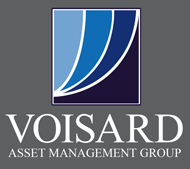10 Questions to help you determine if it is the right fit.
To choose an advisor you feel comfortable with—both personally and professionally—it’s smart to take your time, talk face-to-face, and ask the right questions.
Are you looking for your first investment advisor? Or do you feel that your current advisor no longer meets your needs? This article provided by Charles Schwab can help you ask the right questions to make an informed choice.
Questions to Ask Yourself
Being able to clearly articulate your needs and expectations will help you and the advisors you talk with make an informed decision about whether you’re right for each other.
When you’re choosing an advisor, trust is essential. You can find advisors in a variety of places—in a larger financial firm such as a brokerage house or bank, or in an independent advisory firm.
Where do I start?
As you prepare to interview advisors, you will want to evaluate them objectively. Asking each advisor a consistent set of questions will help ensure that you have the information you need to make a good comparison between the advisors you are interviewing. Any advisor you interview should welcome your questions and give straightforward answers that you can understand. An advisor who skirts around questions or provides incomplete answers should be avoided.
What are your credentials?
An advisor’s professional designations can tell you a great deal about his or her education and areas of expertise.
Do you offer the services I need?
Investment advisory practices vary widely in the services they provide. In general, they fall into one or a combination of the categories listed below. Advisors use the following categories and job titles interchangeably, so it is important to make a self-determination of what category the advisor fits into based on the services they provide.
- Money Managers: If you need someone to manage your portfolio and do your investing, consider a money manager.
- Financial Planners: If you need someone to review your situation and help with big picture planning, consider financial planners.
- Wealth Managers: If you need an advisor who can handle both your investing and financial planning needs, consider wealth managers.
How are you compensated?
Knowing how your advisor is compensated may help you evaluate the relative objectivity of the recommendations you receive. Independent financial advisors generally work on a fee-only or fee-plus-commissions basis.
Who will I work with?
In some cases, the firm’s principal may conduct your initial meeting, and then turn your portfolio over to an associate or a team who actually manages it. If personal rapport is important to you, ask to meet personally with the people you’ll be working with.
How often will we communicate?
Regular contact helps ensure that you and your advisor are clear about your financial goals, risk tolerance, and investment strategy. Typically, your advisor should meet with you in person at least annually—and stays in touch more frequently by phone and email.
How will you report performance?
At a minimum, you should expect to receive:
- Account statements from the advisor or custodian/brokerage firm where your assets are held
- Quarterly summaries of year-to-date investment performance
- A comprehensive annual performance report from your advisor
What is the size of your firm?
A firm’s size—including the number of employees, assets under management, and the average portfolio size—can have a bearing on the quality of service you receive. A follow-up question here is how many clients do you have? An advisor with a huge client load will not be able to provide all clients with individualized attention.
How do you approach investing for people like me?
Before discussing investments, an advisor should get to know you, your financial issues, and your goals for today and the future. This will allow the advisor to give investment advice that is rooted in a deep understanding of what you want to achieve and that can be tailored to your specific needs.
Where will my assets be held?
Independent financial advisors typically use independent custodians—generally brokerage firms or banks—to hold and safeguard their clients’ stocks, mutual funds, and other assets.
You want to be confident that your advisor has chosen a custodian that meets or exceeds the security measures required by industry regulators to protect your assets.
Look for a custodian with important services like trade execution and preparation of monthly brokerage statements, which will allow your advisor to concentrate on managing your portfolio. And ask about the custodian’s policies to protect both personal and financial information from unauthorized activity.
https://www.findyourindependentadvisor.com/FindAdvisor/Content/Documents/MKT91806-00_511789.pdf



